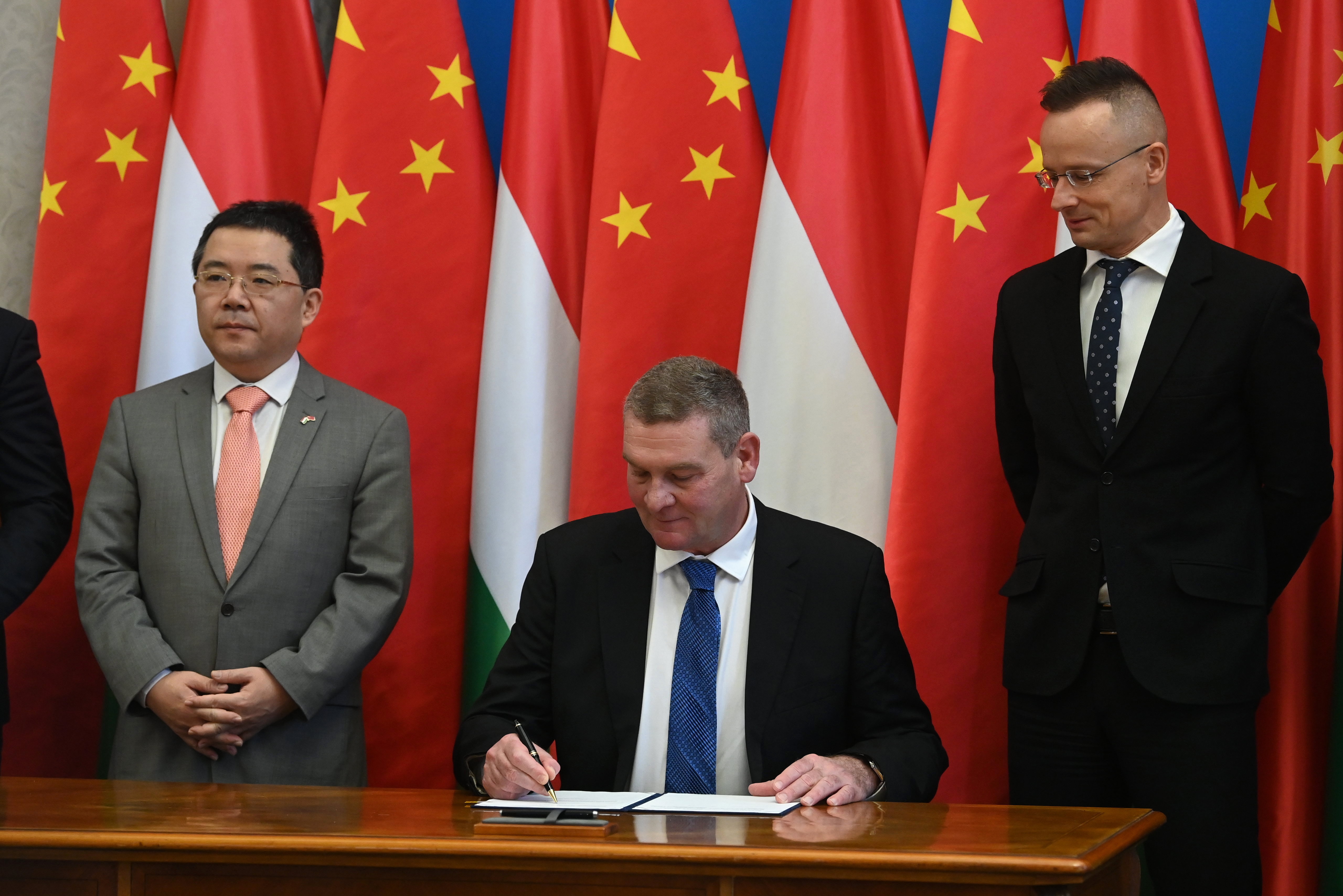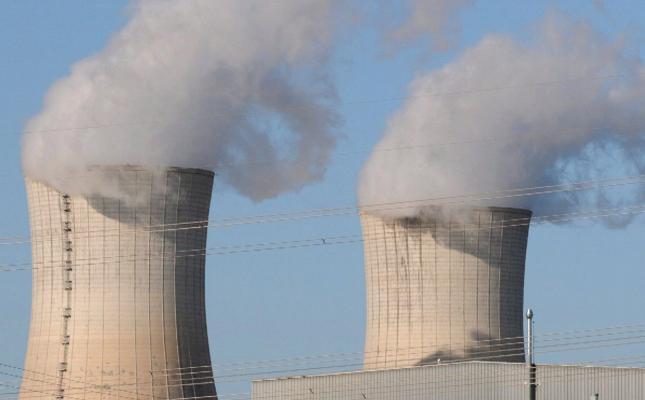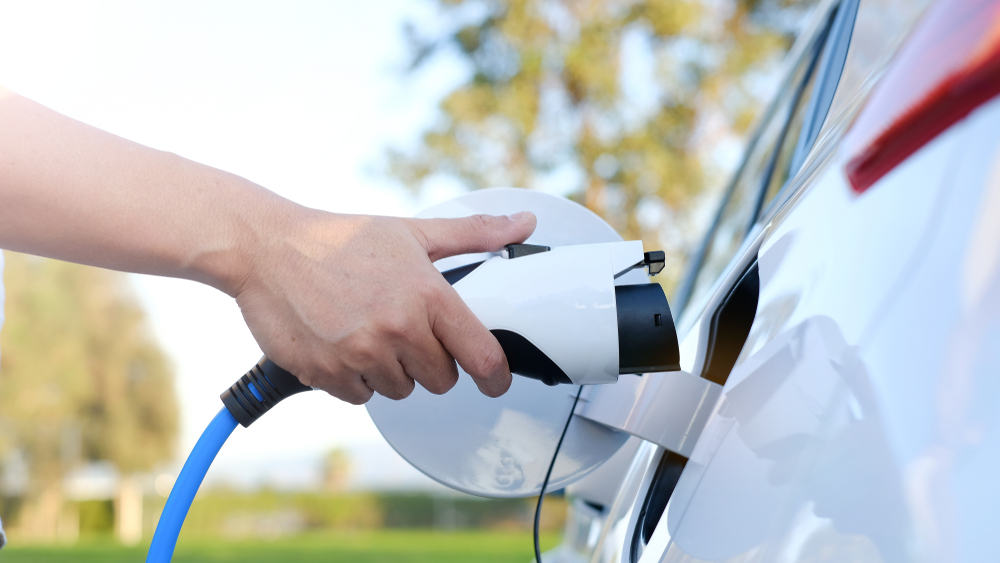BYD Szeged Promises Ecosystem Development and a Significant Economic Boost for the Area

A Seal model EV at the BYD auto handover ceremony at the Puskás Arena in Budapest on Feb. 23, 2024. The Chinese company is now the world’s largest manufacturer of fully electric and hybrid EVs.
Photo by Zoltán Balogh /MTI.
The Szeged factory plans announced just before Christmas by Chinese electric automaker Build Your Dream include an ambitious timeline for production to start, as well as proposals for the long-term economic benefits for Hungary and the infrastructural development planned around the factory’s location.
When it came to the final decision for BYD’s new factory site, the choice was between Hungary and Germany, with the EV company finally settling on Hungary after 224 rounds of negotiations with the Hungarian Investment Promotion Agency, according to About Hungary, the official blog of the Cabinet Office of the Prime Minister.
The decision was announced in December 2023, when BYD ended speculation that had been circulating for some time by publicly naming Szeged (175 km southeast of Budapest by road) as its newest location for the production and assembly of fully electric and hybrid vehicles.
The European publication specializing in the electric transport industry, Electrive, shared the reasoning behind the company’s ultimate decision to buy land in Szeged.
“BYD already has a strong presence in Hungary, having established a high-tech eBus production facility in Komárom [93 km northwest of the capital] since 2016. This has led to BYD’s further investment in Hungary, prompting the announcement in December 2023 that it would construct an electric car manufacturing plant in Szeged, bringing a new wave of technological innovation to Europe.”
“The city of Szeged and BYD both believe in the same values: knowledge, sustainability, and environmental protection,” said Mayor of Szeged László Botka, when he first announced the plans for the factory in his university city.
Since the announcement of the new factory, development of the building has been steadily progressing; BYD signed the preliminary land agreement on Jan. 31, agreeing to purchase nearly 300 hectares of land. The factory itself is already under construction.
“The investment is worth billions of euros and will create thousands of new jobs,” emphasized Minister of Foreign Affairs Péter Szijjártó during the signing of the preliminary land allocation contract at his ministry.

Chinese Ambassador to Hungary Gong Tao (left), Mayor of Szeged László Botka, and Minister of Foreign Affairs Péter Szijjártó at the signing of the pre-purchase agreement for the site of the future BYD factory on Jan. 30.
Infrastructure Dividend
According to Minister of the Prime Minister’s Office Gergely Gulyás, “The government will spend HUF 47 billion-48 bln (EUR 122 million-125 mln) on infrastructure development” around the factory site.
Szijjártó added, “The Hungarian Government will, of course, provide financial support for [the investment], the extent of which will be finalized during negotiations with the European Commission.”
The Hungarian unit of the electric vehicle company has been registered with a share capital of HUF 192 bln, twice the city’s annual budget. The yearly group-level revenue of BYD is nearly three times as much as Hungary’s annual GDP, according to Hungary Today.
The company has announced plans to start production within the next three years, with the goal that the first autos will roll off the assembly line in late 2025. More detailed production plans have not been shared to date.
Apart from the direct manufacturing and sales of electric and hybrid vehicles, the BYD investment also highlights a promising outlook for the Hungarian economy.
During the first Hungarian customer delivery ceremony for BYD EVs on Feb. 23, Szijjártó promised that “BYD’s investment in Szeged would be a long-term guarantee for keeping Hungary’s economy on the path of growth.”
He added, “Chinese companies had brought the most foreign direct investment to Hungary in 2020 and again in 2023.”
Electrifying FDI
With the investment in the BYD factory, Hungary expects a significant increase in FDI, up to double the current amount, by the end of the decade, according to Bloomberg.
“The jump in Hungary’s FDI stock by 2030 from the current level of EUR 100 bln will be mainly in EV and battery investments,” explained Minister of Economic Development Márton Nagy in Shanghai, China, last November.
BYD has promised that the Szeged manufacturing plant will “create thousands of local jobs,” and not just in the factory itself. In a press release after the announcement was first made, BYD vowed it “would use [its] expertise in integrated vertical supply chains to create a local green ecosystem.”
Plans regarding this commitment have already been put into motion. The city and BYD plan to invest in developing the Homokhátság settlements in southern central Hungary.
“We are working to make every resident of Szeged and Homokhátság a winner of BYD’s major investment,” wrote Béla Mihálffy, an MP for the governing Fidesz-KDNP (Christian Democratic People’s Party), on his Facebook page.
Szeged City Hall and the Hungarian Government are collaborating on a regional development package for Homokhátság. Mihálffy declared that the package “will include, in addition to infrastructural developments, educational and training institutional developments, transport developments and agricultural and water management developments.”
Szijjártó highlighted another positive effect of BYD establishing its newest factory location in Hungary.
“This investment also underlines Hungary’s leading role in the technological revolution. It has been a long time since Hungary has been at the forefront of such a fundamental global technological innovation, and now it is happening.”
This article was first published in the Budapest Business Journal print issue of March 22, 2024.
SUPPORT THE BUDAPEST BUSINESS JOURNAL
Producing journalism that is worthy of the name is a costly business. For 27 years, the publishers, editors and reporters of the Budapest Business Journal have striven to bring you business news that works, information that you can trust, that is factual, accurate and presented without fear or favor.
Newspaper organizations across the globe have struggled to find a business model that allows them to continue to excel, without compromising their ability to perform. Most recently, some have experimented with the idea of involving their most important stakeholders, their readers.
We would like to offer that same opportunity to our readers. We would like to invite you to help us deliver the quality business journalism you require. Hit our Support the BBJ button and you can choose the how much and how often you send us your contributions.











